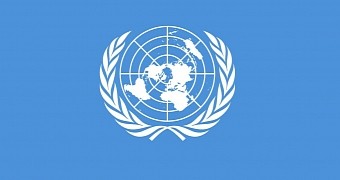The United Nations, who the NSA spies on, according to Edward Snowden’s leaked documents, is now taking a stance on mass surveillance, claiming that it is “indiscriminately corrosive to online privacy.” Furthermore, the United Nations says the entire operation poses a direct and ongoing challenge to international law.
“Bulk access technology is indiscriminately corrosive of online privacy and impinges on the very essence of the right guaranteed by the United Nations’ International Covenant on Civil and Political Rights,” reads a new report signed by the Special Rapporteur on Counter Terrorism and Human Rights Ben Emmerson which was published by The Guardian.
The entire document is, of course, a direct response to revelations based on the leaked top secret documents from Edward Snowden, regarding the mass surveillance operations of the NSA, GCHQ and its other partners.
Surveillance goes against the right to privacy
The report, which counts 22 pages, warns that the use of mass surveillance technology “effectively does away with the right to privacy of communications on the Internet altogether,” referring here to interception programs such as Prism and Tempora.
There are other programs as well, such as the Quantum program, which enables the NSA to take secret control over servers in key locations and by impersonating websites inject unauthorized remote control software into the computers and Wi-Fi-enabled devices of those who visit the clone site.
“It is incompatible with existing concepts of privacy for states to collect all communications or metadata all the time indiscriminately. The very essence of the right to the privacy of communication is that infringements must be exceptional, and justified on a case-by-case basis,” Emmerson writes.
He added that many countries are now able to intercept and monitor the calls both from landline or mobile phones and, thus, can determine the individual’s location. Furthermore, more and more governments use malware to infiltrate users’ devices. This, he says, amounts to a systematic interference with the right to respect for the privacy of communications, and requires a correspondingly compelling justification.
“The Internet is not a purely public space. It is composed of many layers of private as well as social and public realms,” Emmerson reasoned, adding that mass surveillance technology can contribute to the suppression and prosecution of acts of terrorism does not provide an adequate human rights law justification for its use.
Even so, the right to privacy is not an “absolute right,” but individuals should be subjected to such tactics only when there’s a legitimate counter terrorism investigation or for law enforcement purposes. Basically, targeted online surveillance, but not the way they’ve been doing it up until now, collecting the entire haystack in the hopes of finding a piece of the needle.

 14 DAY TRIAL //
14 DAY TRIAL //